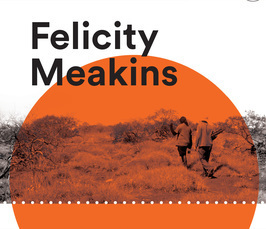Distinguished Lecture by Felicity Meakins: "Language diversification through the lens of rapid intergenerational change?"
Distinguished Lecturer Seminar Series
- Datum: 19.09.2019
- Uhrzeit: 13:00
- Vortragende: Salima Ikram
- ARC Future Fellow School of Languages and Cultures Faculty of Humanities and Social Sciences University of Queensland, Australia
- Ort: MPI SHH Jena
- Raum: Villa V14
- Gastgeber: Abteilung für Sprach- und Kulturevolution
- Kontakt: schueck@shh.mpg.de

Most cases of language creation occur as languages split and diverge
from other languages in processes which are conceptualised in linguistic
phylogenies. More rarely, some languages emerge abruptly over the
course of one or two generations in language communities where the
mechanisms of language change are observable via intergenerational
snapshots of language use. These case studies provide the opportunity to
observe language change in real time. In this talk, I describe the
rapid birth of Gurindji Kriol in northern Australia. I outline an
innovative modification of classic population genetics methods to
investigating temporal change in linguistic data which has been
developed with Lindell Bromham and Xia Hua. I present data from 78
speakers coded for their use of Gurindji, Kriol and Innovative variants
across 120 variables (with 292 variants). Changes in variant use are
tracked over three generations of Gurindji people by adapting the
Wright-Fisher population model. While this model has been shown to
simulate plausible patterns of language change, this is the first
application of Wright-Fisher models to a large sample of language
variants within a single speaker community in order to model broad-scale
language change over time. Such methods aim to increase our ability to
explain language change, with a view to making predictions about how
languages will change.